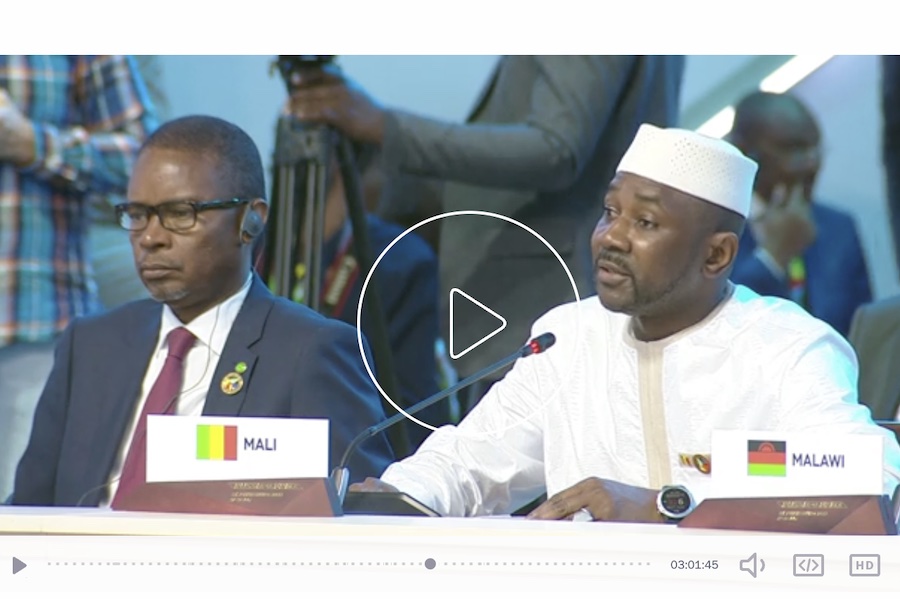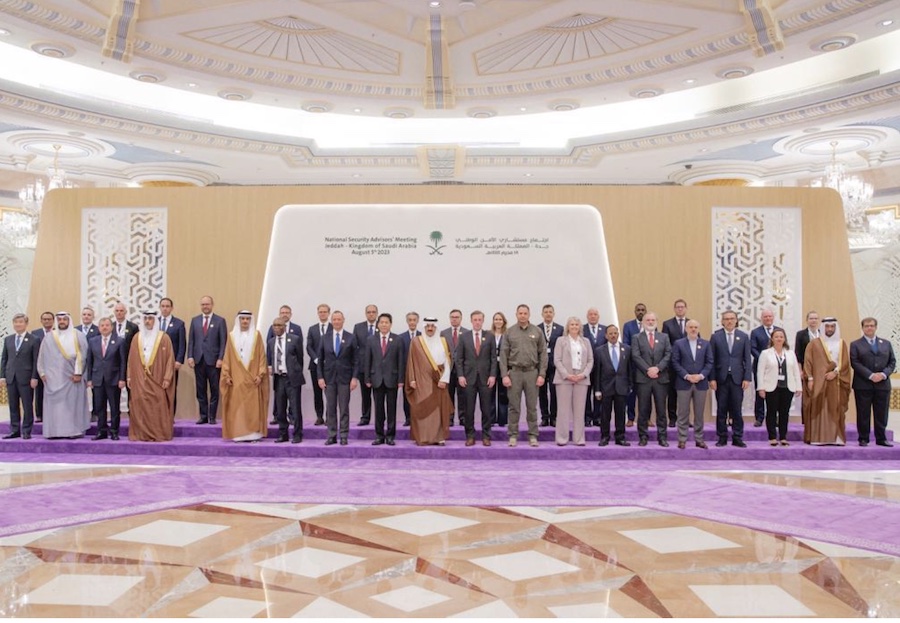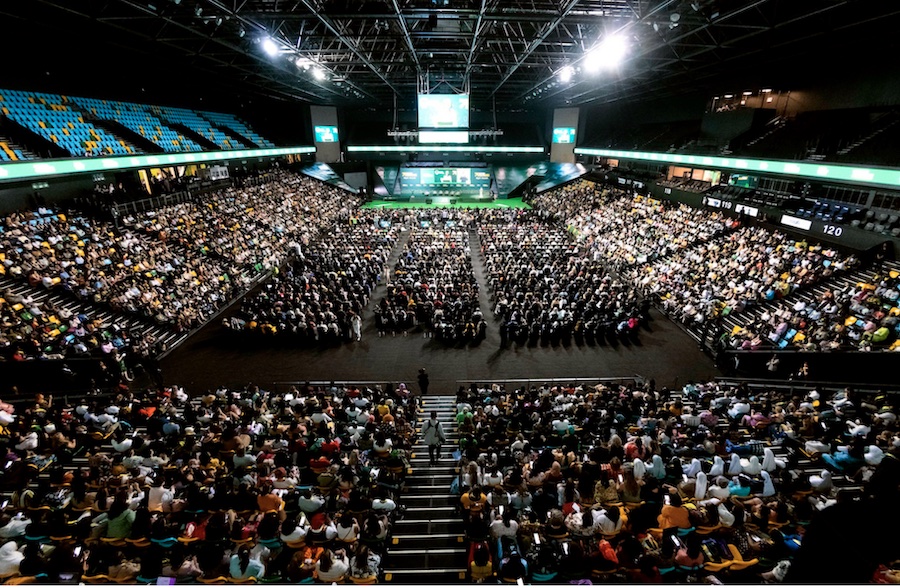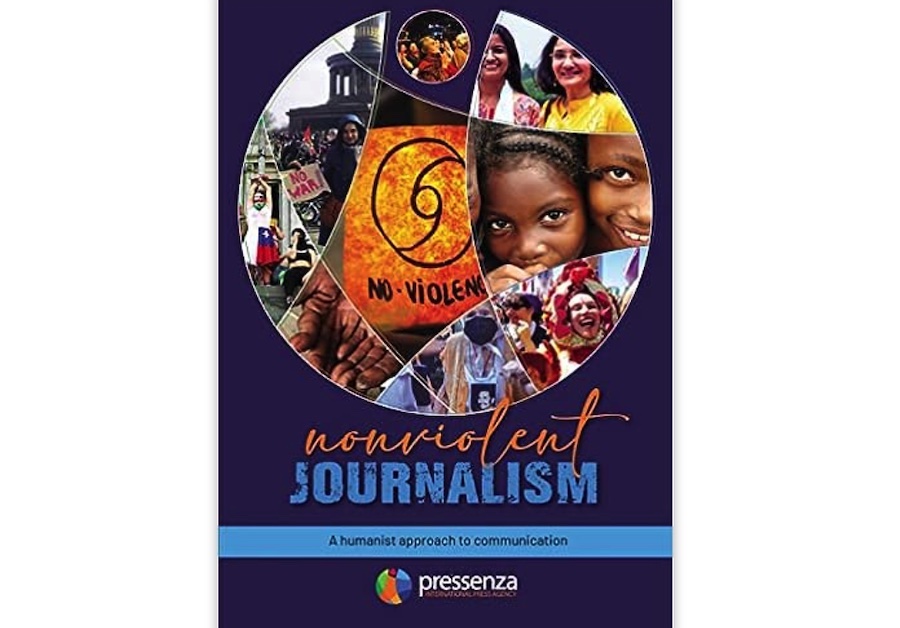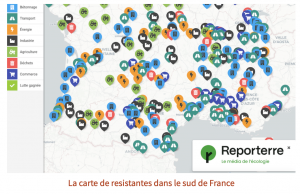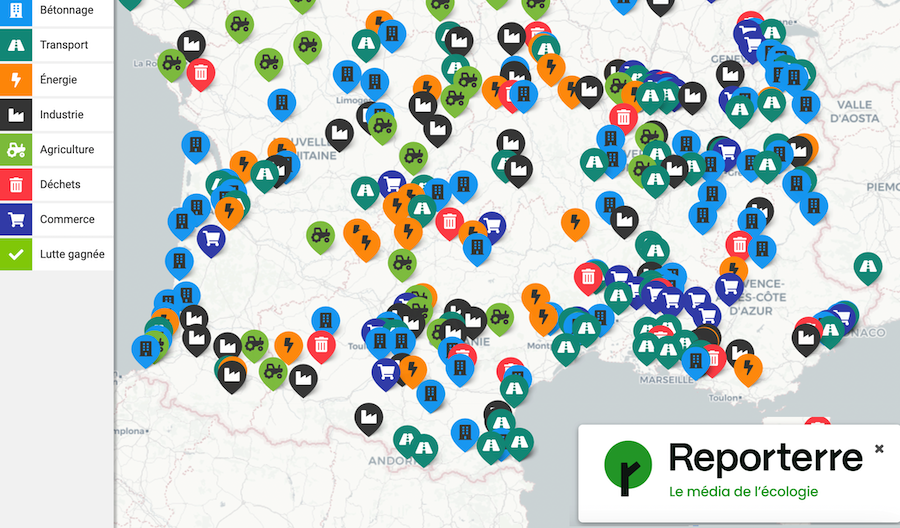DISARMAMENT & SECURITY .
A press release from the International Peace Bureau
The International Peace Bureau (IPB) has announced our intention to nominate three exceptional organizations for the 2024 Nobel Peace Prize: the Russian Movement of Conscientious Objectors, the Ukrainian Pacifist Movement, and the Belarusian organization “Our House”. The decision to nominate these three organizations is a testament to their unwavering dedication in advocating for the right to conscientious objection to military service and promoting human rights and peace in their respective countries.
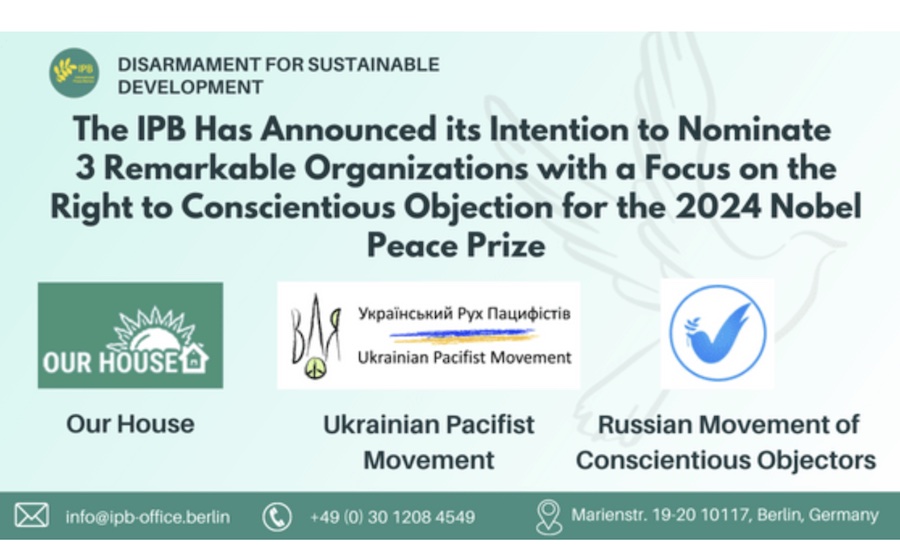
The Nobel Peace Prize is one of the world’s most esteemed awards, recognizing individuals and organizations that have made significant contributions to the pursuit of peace and harmony. The nomination period for the 2024 prize will open on 1 September 2023 and the nominations will be promptly submitted for consideration.
The Russian Movement of Conscientious Objectors (https://stoparmy.org/), the Ukrainian Pacifist Movement (http://pacifism.org.ua/), and the Belarusian Our House (https://news.house/) have demonstrated unparalleled excellence and dedication in their efforts as defenders of peace, conscientious objection, and human rights, especially after the Russian war of aggression against Ukraine began on 24 February 2022 and despite the considerable stigmatization each organization has faced since.
The fundamental right to conscientious objection to military service is an inherent human right, protected under the right to freedom of thought, conscience, and religion as safeguarded by Article 18 of the International Covenant on Civil and Political Rights (ICCPR). This right remains inalienable, even during periods of public emergency, as explicitly stated in Article 4(2) of the ICCPR. Embracing conscientious objection is a concrete means of contributing to peace. Hence, it becomes imperative to emphasize and safeguard this fundamental human right, especially during times of war.
(Continued in right column)
Can the peace movement help stop the war in the Ukraine?
(Continued from left column)
Even in the face of escalating threats, the three movements persist in their dedication to aiding individuals who resist war and military mobilization. Their focus is particularly on supporting those who endure persecution, torture, and imprisonment. This commitment encompasses all instances of forced and violent recruitment into participating armies, as well as the persecution of conscientious objectors, deserters, and non-violent anti-war demonstrators.
“We are humbled and honored to nominate these three remarkable movements for the Nobel Peace Prize. Their courage in championing the right to conscientious objection and their tireless efforts to promote peace and human rights serve as an inspiration to us all,” said Philip Jennings, Co-President of IPB.
By nominating these three movements, we seek to raise awareness about the importance of the right to conscientious objection, fostering peace and human rights. Furthermore, we hope that the announcement of this intended nomination will remind and pressure governments and nations across the globe to respect the right to conscientious objection in their own countries and provide alternatives to military service for those that object. This includes the right to asylum for conscientious objectors forced to flee their own countries in order to avoid military service.
We call other organizations and particularly Nobel Peace Laureates from across the globe to support this nomination. Together our voices in support for conscientious objection can protect those who are selflessly putting their lives on the line to defend their beliefs and their compatriots who reject war and violence.
The selection process for Nobel Peace Prize laureates is highly competitive and is conducted by esteemed committees dedicated to recognizing peace efforts worldwide. We firmly believe that these three movements stand among the most deserving candidates for this prestigious recognition.
About IPB
The International Peace Bureau is dedicated to the vision of a World Without War. Our current main programme centres on Disarmament for Sustainable Development and within this, our focus is mainly on the reallocation of military expenditure. We are a Nobel Peace Laureate (1910); over the years, 13 of our officers have been recipients of the Nobel Peace Prize.
For media inquiries or further information, please contact:
International Peace Bureau
info@ipb-office.berlin
+49 (0) 30 1208 4549
Marienstraße 19-20 10117, Berlin – Germany
(Editor’s note:To publish a comment on this article, send to coordinator@cpnn-world.org with title, “comment on IPB”.)

